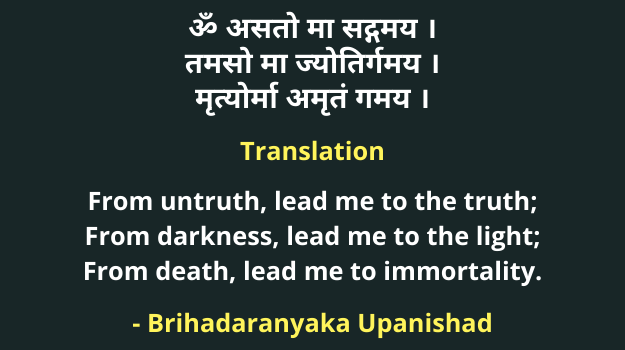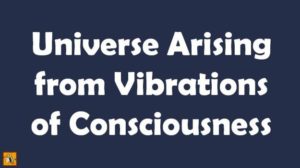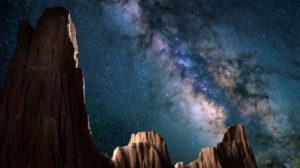The Spiritual Bee Foundation needs funds for its operations. Support with a Donation.
What is consciousness and from where does it originate? How does a Universe composed of unconscious matter give rise to conscious entities such as you and me, capable of thinking, analysing and uncovering its secrets?

These questions constitute the consciousness conundrum, which is one of the toughest and most complex problems facing science today.
In fact this problem is so difficult that many in the scientific community have dubbed it the “hard problem”, which means that it cannot be solved at the current levels of human knowledge.
Why is Consciousness So Difficult to Analyse?
The reason is because consciousness is a subjective experience. What this means is that for each one of us, the world intriguingly appears as, partitioned into two – an inner world comprising a conscious subject “I” who is aware, and an outer world consisting of the “objects” and things we observe outside.
This is known in philosophy as the subject-object split and because of it, while we are able to analyse phenomenon that occur in nature outside, yet at the same time, it becomes virtually impossible to analyse the subject inside – i.e. the very consciousness that makes us aware.
This challenge is better illustrated with the help of the following example: Suppose I go for a stroll in the garden where I see a beautiful flower. Here the flower is an external object whose shape, colour and behaviour I can determine. But how do I observe the very awareness within me that is letting me observe the flower? In other words, how to know the knower? This is the dilemma.
Not only this, but if a scientist friend of mine wishes to study my consciousness, she is faced with yet another dilemma – there is no real method or instrument by which she could “get inside my head” so as to speak, and experience, “my experience of admiring the flower” exactly as I do.
Because of these inherent difficulties, modern science since its very inception in the 17th century in Europe, has for the most part, omitted analysing the subjective (inner) experience of consciousness, and instead trained its energies on the objective (outer) Universe of matter, comprising things which can be accurately probed, quantified and measured.
Where Science and Religion Collide – The Discarding of the Soul as the Source of Consciousness, in Favour of Matter
The consequences of science’s historical focus on matter have been double-edged. On the one hand science has triumphed in unraveling many of the mysteries of the material Universe, but at the same time, these very successes have caused many in the Western scientific community, to get locked into thinking that matter must be the primary and ultimate reality, on the basis of whose laws and interactions, every phenomenon in the Universe, including the subjective experience of consciousness, can be fully explained.
Armed with this faith in the supremacy of matter, many biologists, led by the late Francis Crick of the DNA fame, have over the last few decades, made fresh new attempts at solving the consciousness conundrum.
They have begun their foray, by first and foremost discarding a belief held true for thousands of years, by many religions of the world – that there exists a spiritual entity called the soul, which transcends matter and is the real source of consciousness within all.
In its place, these scientists have proposed the matter hypothesis, according to which, the origins of consciousness lie not with a living soul, instead, consciousness is most likely produced as a by-product of interactions between atoms and molecules of matter.
Now even though at the present moment, this “matter as the source of consciousness” hypothesis, is at best a premature conjecture, and extremely far from being proven; nevertheless, it has managed to gain substantial support amongst Western researchers, boosted primarily by one significant factor – and that has been the disproving of the Biblical account of Creation, by the lights of modern science.
We shall examine this fact and its repercussions in a little more detail next, in Part 2.
Other Posts in “Consciousness ” Series:
- Part 2: The Demise of the “Biblical God of Creation” and the Rise of Mechanistic Science – Why have many Western scientists concluded that God does not exist and humans are soul-less machines? Know the real reason behind this error!
- Part 3 (VIDEO): Vedanta on God – Universe Arising from Vibrations of Consciousness – Science says God doesn’t exist! India’s Vedanta Philosophy disagrees! God exists but not as a person. Instead He is an ocean of consciousness
- Part 4: Does Consciousness Arise from Matter? Do Neurons in the Brain Give Rise to Consciousness? – Traditionally scientists have thought that neurons firing in the brain give rise to consciousness. Is this true? New research disagrees!







